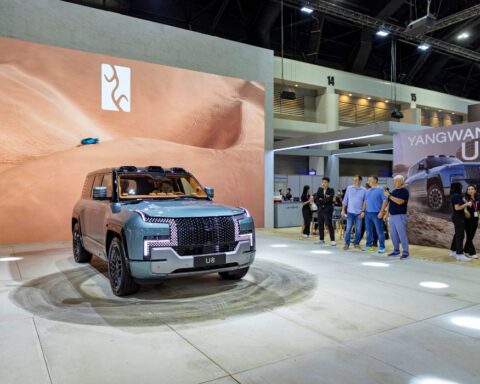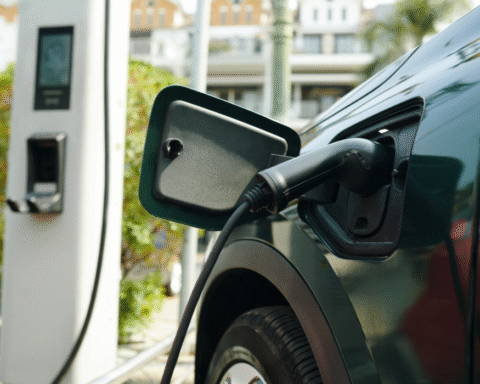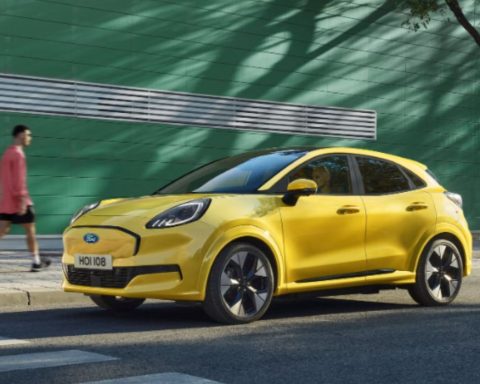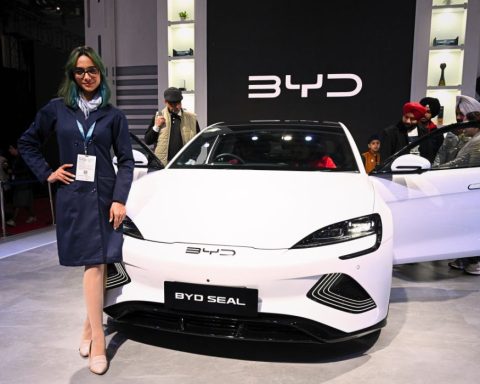With one foot on the gas pedal and another on the brake, European automobile manufacturers are lurching toward zero-emission fleets by 2035.
In late June, the environment ministers of the 27 European states agreed to reduce the allowable CO2 emissions of new vehicles in 2035 to zero – putting an end to engines running on gasoline, diesel or natural gas. Effectively, the new standard will be electric vehicles – with the EU deferring until 2026 a decision on whether to phase out combustion/electric hybrids by 2035.
The agreement quashed a request for more time by some automakers, which revealed a growing split in the automobile and broader mobility sectors. In mid-May, Volvo and Ford Europe joined a broad coalition of companies, including Zurich Insurance Group, in urging the EU to take action. “Policies put in place in the next few years will decide whether the world has a fighting chance to curb climate change,” said the letter signed by 28 companies. “To enable all cars and vans on the road to reach zero emissions by 2050, the last car with any combustion engine, including hybrids, should be sold no later than 2035.”
Other car brands have pledged to sell only electric cars in Europe by the end of the next decade but had sought to avoid a firm 2035 deadline. Renault chief executive Luca de Meo said the shift to electric could take a long time: “The choice of going all electric for everyone and everywhere is not that obvious.” And the powerful European Automobile Manufacturers’ Association (ACEA) questioned whether sufficient charging infrastructure could be built in time.
The industry letter, co-ordinated by Brussels-based green-mobility lobbyists Transport & Environment, says that passenger cars and light commercial vehicles account for 15% of Europe’s CO2 emissions and that electric vehicles will be a key pillar in the fight against climate change: “Every fifth car sold across the EU in 2021 had a plug.”
Other signatories to the open letter include heavyweights such as Uber, Pfizer, SAP, Sanofi, Tesco, Unilever and even Toronto battery-recycling start-up Li-Cycle. Volvo Cars, which had already committed to stop selling gas and diesel models in Europe by 2035, said the EU’s 2035 law “would not only be in line with the goals of the Paris Agreement, which require 100% zero tailpipe emission vehicle sales in Europe by 2035, but it’s just the right thing to do.”
The ACEA disagreed with the ministers’ decision, arguing that “any long-term regulation going beyond this decade is premature at this early stage.” In response, Volvo Cars said it would leave the association – following the lead of the fourth-largest carmaker, Stellantis (formerly Fiat Chrysler), which announced in June it would quit the ACEA to focus on its own “fact-based approach” to the future of mobility.
But there aren’t just two sides to this story. Environmental lobby group Greenpeace denounced the ministers’ action, saying 2035 is too late to limit global heating to the Paris Agreement’s 1.5°C target. “Europe desperately needs to decarbonize transportation, but ministers missed a golden opportunity.”
For their part, the letter’s signatories predicted that the clarity of the 2035 deadline would accelerate the growth and innovation the EV market needs: “This will set in motion an urgently needed systemic transformation and make Europe a global leader in a key industry for a net-zero future.”
Meanwhile, California regulators are also working toward a 2035 ban on new fossil-fuel vehicles. If approved later this year, the regulations would likely be adopted by more than a dozen other states, including New York and New Jersey, which have previously embraced California’s clean-car rules.
Canada’s federal government says it will be bringing in a sales mandate to ensure 100% of new light-duty vehicle sales will be zero-emission vehicles by 2035.







